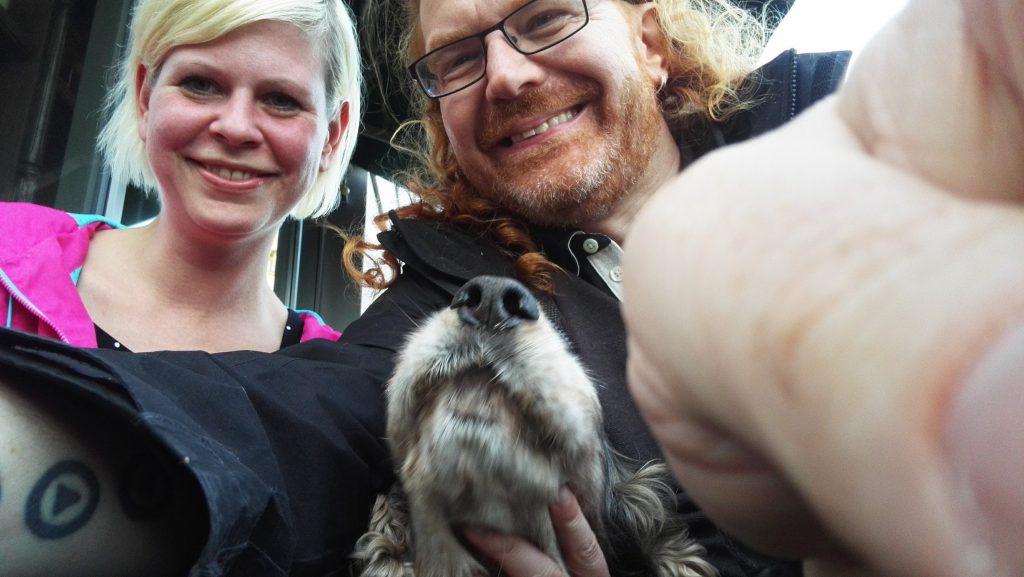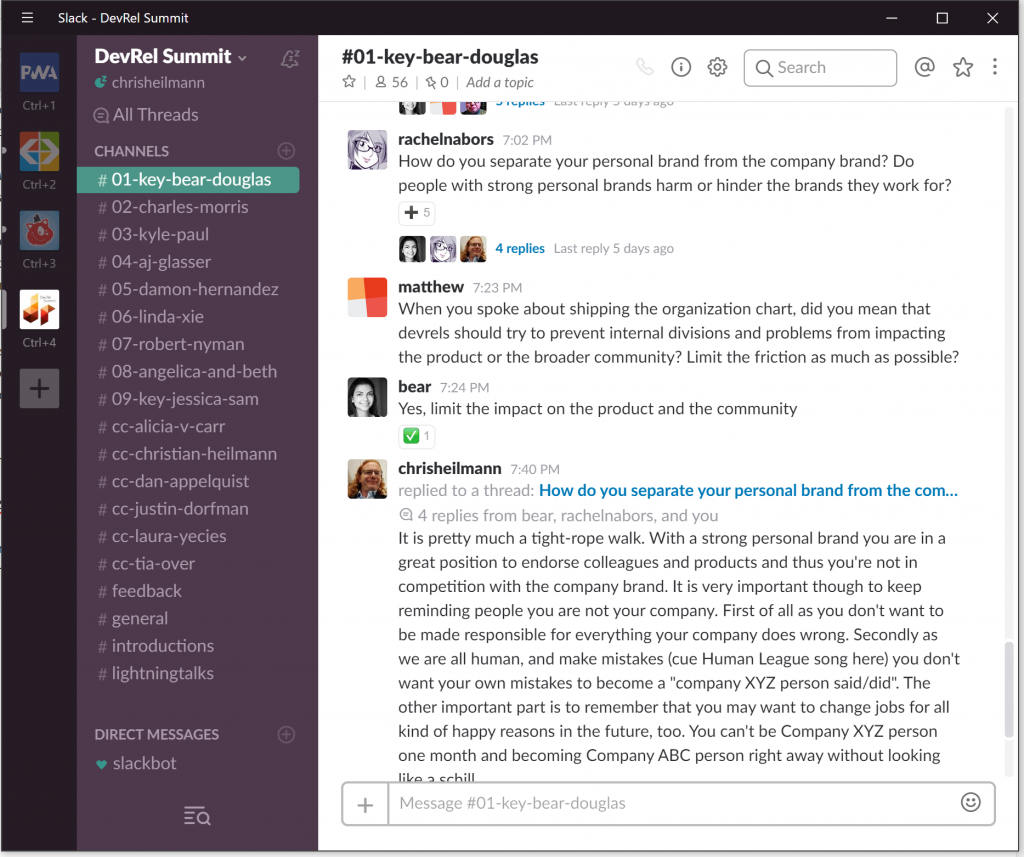Taking a break – and so should you
Wednesday, August 16th, 2017TL;DR: I am going on holiday for a week and don’t take any computer with me. When I’m back I will cut down on my travels, social media and conference participation and focus more on coaching others, writing and developing with a real production focus.

You won’t hear much from me in the next week or so as I am taking a well-deserved vacation. I’m off to take my partner to the Cayman Islands to visit friends who have a house with a spare room as hotels started to feel like work for me. I’m also making the conscious decision to not take any computer with me as I will be tempted to do work whilst I am there. Which would be silly.
Having just been in a lot of meetings with other DevRel people and a great event about it I found a pattern: we all have no idea how to measure our success and feel oddly unsatisfied if not worried about this. And we are all worried about keeping up to do date in a daily changing market.
I’m doing OK on both of these, but I also suffer from the same worries. Furthermore, I am disturbed about the gap between what we talk about at events and workshops and what gets released in the market afterwards.
The huge gap between publication and application
We have all the information what not to do to create engaging, fast and reliable solutions. We have all the information how to even automate some of these to not disrupt fast development processes. And yet I feel a massive lack of longevity or maintainability in all the products I see and use. I even see a really disturbing re-emergence of “this only needs to work on browser $x and platform $y” thinking. As if the last decade hadn’t happened. Business decisions dictate what goes into production, less so what we get excited about.
Even more worrying is security. We use a lot of third party code, give it full access to machines and fail to keep it up-to-date. We also happily use new and untested code in production even when the original developers state categorically that it shouldn’t be used in that manner.
When it comes to following the tech news I see us tumbling in loops. Where in the past there was a monthly cadence of interesting things to come out, more readily available publication channels and a “stream of news” mentality makes it a full-time job just to keep up with what’s happening.
Many thoughtpieces show up in several newsletters and get repurposed even if the original authors admitted in commentary that they were wrong. A lot is about being new and fast, not about being right.
There is also a weird premature productisation happening. When JavaScript, Browsers and the web weren’t as ubiquitous as they are now, we showed and explained coding tricks and workarounds in blog posts. Now we find a solution, wrap it in a package or a library and release it for people to use. This is a natural progression in any software, but I miss the re-use and mulling around of the original thought. And I am also pretty sure that the usage numbers and stars on GitHub are pretty inflated.
My new (old) work modus
Instead of speaking at a high amount of conferences, I will be much pickier with where I go. My time is more limited now, and I want to use my talents to have a more direct impact. This is due to a few reasons:
- I want to be able to measure more directly what I do – it is a good feeling to be told that you were inspiring and great. But it fails to stay a good feeling when you don’t directly see something coming out of it. That’s why instead of going from event to event I will spend more time developing tools and working directly with people who build products.
- I joined a new team that is much more data driven – our job is to ensure people can build great apps and help them by fixing our platform and help them apply best practices instead of just hearing about them. This is exciting – I will be able to see just how applicable what we talk about really is and collect data of its impact. Just like any good trainer should ensure that the course attendees really learned what you talked about this is a full feedback loop for cool technologies like ServiceWorker and Push Nofifications.
- We just hired a truckload of talented people to coach – and I do want to see other people on stage than the usual suspects. It is great to see people grow with help you can give.
- I just had a cancer growth removed from my face – it was benign but it is kind of a wake-up call to take more care about myself and have my body looked after better on an ongoing basis
- I am moving to Berlin to exclusively live there with my partner and our dog – I’ve lived out of suitcases for years now and while this is great it is fun to have a proper home with people you care about to look after. I will very much miss London, but I am done with the politics there and I don’t want to maintain two places any longer.
- I will spend more time coding – I am taking over some of the work on PWAbuilder and other helper tools and try them out directly with partners. Working in the open is great, but there is a huge difference between what Twitter wants and what people really need
- I will write more – both articles and blog posts. I will also have a massive stab at refreshing the Developer Evangelism Handbook
- I will work more with my employer and its partners – there is a huge group of gifted, but very busy developers out there that would love to use more state-of-the-art technology but have no time to try it out or to go to conferences.

What this means for events and meetups
Simple.
- I will attend less – instead I will connect conferences and meetups with other people who are not as in demand but great at what they do. I am also helping and mentoring people inside and outside the company to be invited instead of me. A lot of times a recommendation is all that is needed. And a helping hand in getting over the fear of “not being good enough”.
- I will stay shorter – I want to still give keynotes and will consider more workshops. But I won’t be booking conferences back-to-back and will not take part in a lot of the social activities. Unless my partner is also coming along. Even better when the dog is allowed, too.
- I am offering to help others – to review their work to get picked and help conference organisers to pick new, more diverse, talent.
I have a lot of friends who do events and I will keep supporting those I know have their full heart in them. I will also try to be supportive for others that need a boost for their new event. But I think it is a good time to help others step up. As my colleague Charles Morris just said at DevRelConf, “not all conferences need a Chris Heilmann”. It is easy to get overly excited about the demand you create. But it is as important to not let it take over your life.
